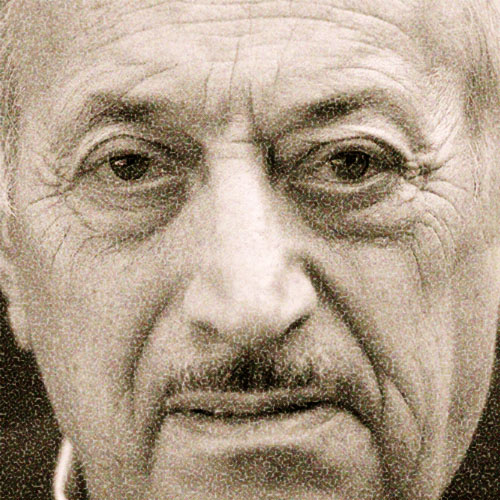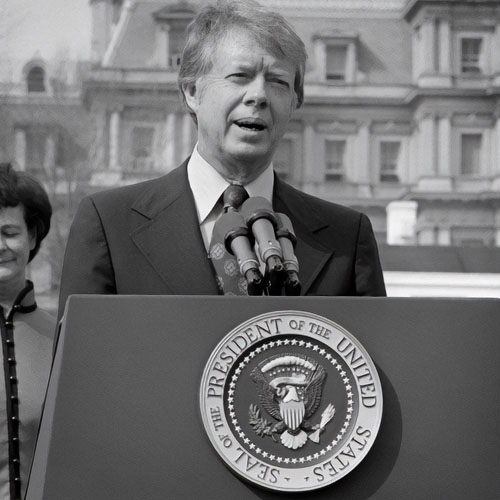“The fury against my candidacy is just one measure of how hard those in power are going to fight real change…. We have to touch the hearts of those who believe politics is a rip-off.”
The Man and The Mission
I first encountered Governor Jerry Brown in late 1959 when, two years out of law school, I went to work in the office of Senator John F. Kennedy to help prepare the campaign that would elevate him to the presidency in little more than a year. California was, of course, a crucial state in the fight for the nomination, and Brown’s support, though important, was not quite as crucial as that of Jesse Unruh, the then acknowledged leader of the state Democratic party. Unruh was known as a political “boss” in those tranquil days before the primary system had taken control of the nominating process. Later I was to become an advocate of primaries, which, much to my dismay, would later provide the party with candidates of far lesser stature than those picked by a handful of leaders. It was the ‘bosses’ who selected Franklin Roosevelt, Adlai Stevenson, and Kennedy; while in subsequent years, the votes gave us candidates who were — to express it euphemistically — of somewhat lesser stature. Governor Brown was to prove helpful in securing the nomination, and he worked diligently for Kennedy’s election — although Nixon was to. win the state by a handful of votes.
The governor I went to visit on Kennedy’s behalf was not the man who is the subject of this interview, but his father, Edmund “Pat” Brown. I knew he had a son, but Jerry, after all, was just a kid whose views had no place in our calculations, even though he was only a few years younger than I was.
In the tumultuous years to follow, I worked in the White House for presidents Kennedy and Johnson, resigning in late 1965 to join the anti-war movement and participate in the campaigns of Eugene McCarthy and Robert Kennedy. “Young” Jerry’s career took a different path. Our paths rarely crossed — a casual encounter or two. He became governor of California, was re-elected, and left office for a hegira in search of a deeper understanding of himself and the country he wished to serve. Unaware of Jerry Brown’s quest, I took a path that was not too different. After Robert Kennedy’s murder, I retired to the mountains of western central Maine, wrote a book that reflected on the human condition, and returned, after many years, as Jerry did, to the arena of action.
Unknown to either of us, our feelings and views about America and the manner in which it was governed had begun to converge. The shining land of unlimited opportunity was being degraded, its society deteriorating, and both of us, in different ways, felt compelled to relinquish the luxury of withdrawal and engage in at least one more effort to restore the country to that brilliant promise that had, in our youth, seemed so close to realization. My only weapon was words, and I have embodied my profound concerns in books and articles, the most recent of which — to be published this summer — persuaded this Governor Brown to meet with me and discuss our mutual disillusionment with the failure of politics and government to halt the now visible decline of America.
It was this conviction that persuaded Brown to mount his Rocinante for another charge against the forces that are undermining the promise of America. He took the course best matched to his own experience and skills. He ran for president. And whatever the outcome of his effort, he will have helped illuminate a reality that we both perceive with equal intensity: the virtual paralysis of public action. It is almost as if government had become a kind of public relations game in which it is enough to name problems and call for resolution without any need to act. “We must improve our schools,” says the President. “We must preserve our environment” or “reduce the deficit,” say the leaders of Congress. And presto, children learn, nature is restored, and the deficit disappears.
But it is not, of course, a game. We are being led into a depression that will undermine the source of American strength, which is not our wealth or military strength, but the liberty that we created amid a world of despotisms and sustained for two centuries. That liberty, in Lincoln’s words, “gave promise that in due time the weight would be lifted from the shoulders of all men.”
The minuscule voter turnout confirms the numerous “in-depth” surveys that reflect increasing public disenchantment with politics. But you do not need a political scientist to confirm what the conversations of daily life reveal so clearly — many, perhaps most, Americans are aware that government is under the sway of privilege, that it lacks both the will and intention to resolve the problems of American life. The disenchantment is there because the harsh winds of experience have blown enchantment away.
When Jerry Brown speaks of taking America back, he means more than changing the structure of politics. He wishes, as do I, to restore the enchantment that was not merely an illusion but a realistic possibility: a great country whose people were joined in a common movement to enhance their own lives, the well-being of American community, and ensure future generations the same opportunity for human fulfillment that we inherited. Whatever happens this election year, that movement — that struggle — must continue. For the only alternative is to abandon the principles so clearly stated in the Declaration of Independence, on which this nation was founded and which it has pursued for two centuries. The forces of dissolution are powerful, and the only alternative to struggle is resignation to the extinction of the dream that was — and that remains — America.
I believe that is Jerry Brown’s own belief. And I know it is mine.
When you say that America isn’t governable now, what do you mean?
I mean that the basic objectives of a civil society — which include justice, a reasonable level of harmony among different groups, and acceptance of the governing leadership, all of which should be handled in such a way that one can feel secure as a rule rather than an exception — these objectives have been eroded in the exile of a whole generation of young people, particularly black and Latino children; the bombed-out buildings and neighborhoods in so many American cities; the rising, uncontrollable national debt; the misallocation to military defense abroad from civilian revitalization at home; the continuing loss of competitive power abroad; the crime rate; the tremendous profusion of drugs — all this manifests the country that, far from having its act together, is suffering a real legitimacy crisis.
Do you think that kind of legitimacy can be restored from the top, or does it have to come from the people themselves, from the bottom up?
It must come from the bottom up, in a very fundamental sense. Today we have the top, the elite, the people who bundle $1,000 donations, the incumbents and their allies, running massive campaigns of manipulation through television, through computer letters, and all of this with very little participation other than passive television viewing or the opening of political junk mail. What is required for any kind of confidence and broad support is for a structure of participation to be put in place that brings people back into politics, back into decision-making, and has more at the national level of the characteristics of village town meetings.
Do you think the Democratic party is a vehicle that can bring this about, or are we going to have to go outside the existing party structure?
I certainly hope the Democratic party can rise to the occasion. In fact, that’s the premise of my insurgent campaign. What we’re trying to do is restore the primacy of the Jeffersonian founding principle, which is to stop the “power of the few from rioting on the labors of the many.” Unfortunately, the decrepitude, the complacency, the almost monolithic manner in which the Democratic National Committee and other local structures function, does not open itself to creative change, to reaching out to young people, to increasing numbers of minorities who just think government’s a rip-off. The support of our incumbents year after year is coming at great compromise to our connection to a grass-roots activism that has to be the fire and the fuel of an energized political party that can offer opposition to the increasing irresponsibility of multinational management.
But not long ago you were part of this same party establishment. What kind of epiphany occurred that led you to think that you could rescue the Democratic party from its sins?
Two things: First, having been away from official office-holding since 1983, and second, coming back as chairman of the state party in California and attempting to actually make the structure of the party work. Trying to raise millions of dollars, working with the incumbents, seeing the small number of volunteers who show up and the demoralization … the weary attitude that pervades a lot of official party functions … all that convinced me that the enormous fundraising that flows into the Democratic party will never be enough. We have to go back to the roots, we have to galvanize the moral energy; we need charismatic leadership, and we need a consistent ideological agenda that will allow us to touch the hearts of those who believe politics is a rip-off.
You’re a very private person who’s chosen to engage in the most public of all occupations. Don’t you find that painful?
Not exactly. Coming from a family where my father was running for office during my entire growing up from day one, it was just part of the home environment. At the dinner table every night, there would be telephone calls coming to my father about one political problem or another. So even though I withdrew and rebelled from it, and felt uncomfortable with the notoriety, nevertheless, after I’d gone to the seminary and come back, I began to drift into politics. And around the time of the Vietnam War, I actually jumped in, and that led directly to running for Junior College Board, secretary of state, and then the governorship of California.
So you ’re now able to fully engage in politics without ever feeling you’re shrinking from having to be available to people all the time, being open to people most of the time?
Well, I am somewhat shy, but I do enjoy politics. I really thrive on the convergence of an idea and its embodiment in action. Like taking a concept such as the Civilian Conservation Corps to the reality that in California 50,000 young men and women actually went through our C.C.C. camps. But more than that: After my time as governor, I began to integrate the dichotomy of a religious commitment and that of a political commitment. That integration derived from my time of reflection in Japan and traveling throughout the world — particularly meeting with members of the peace and justice community serving in Central America, who were doing what they could to translate moral vision into social activism — and then going to Calcutta and seeing the power of Mother Teresa and working at the home for the dying and destitute. Finally, I came back determined to integrate moral vision and political action.
So you determined, then, that there was no real dichotomy between spiritual life and the life of action?
No, there isn’t …. Well, maybe I said that too easily. There definitely is a difference between being on a mountaintop of reflection and silence and going through the presidential primary in the boroughs of New York. But from the larger — or I could say deeper — perspective, serving people, serving the conscience of the community through politics, can be as ennobling and as personally challenging as any kind of moral or private spiritual discipline. It’s a matter of viewing the slings and arrows, the failures, the pressures, as testing points, as just part of the gauntlet that one goes through on the path to enlightenment and a more perfect way of being in the world.
How do you translate that into action? Let’s suppose Jerry Brown gets elected president. You have a Congress made up of established bureaucrats who for 20 or 30 years have been carrying out the policies that you’re now opposing. Do you really think that you’re going to be able to accomplish what you want?
In the ordinary course of things, no. But based on my experience in California, I’ve seen how powerful outside constituencies can be. For example, the· agricultural community was highly, highly influential in determining whether or not the state legislature voted funding for the agricultural labor-relations board. So legislative action, congressional action, doesn’t occur in a vacuum — it occurs inside the hurly-burly cross pressures of American economic and political forces. So for me to govern with any continuity or commitment, I would need to have millions of people organized behind me. Traditionally, our party provided that function; but today my insurgent campaign aims to create that through the enrollment in this process of literally hundreds of thousands of activists, who after the inauguration in January will be enlisted to lobby for the agenda on which this campaign prospered.
So as president, you would build what Teddy Roosevelt called a “bully pulpit” outside your administration in order to allow various constituencies to compel the government to act in the interests of the general community?
Well, that’s the goal. Remember how Reagan was able to mobilize a business elite for his AWACS sale to Saudi Arabia against a very determined congressional opposition? I see that kind of power, but focusing on the grass roots using the 800 number, with limited small-donor financing, feeding into a real program and institutional form of activity and involvement. I believe we can embed within the Democratic party the enthusiasm and the structure of participation that could turn the balance in close congressional debates.
If the Democratic party should not nominate you and instead nominate an orthodox candidate with an orthodox platform and it’s politics as usual, what do you foresee as its fate?
A low voter turnout and a Bush victory. Bush will win because, for no other reason, he has the power to stimulate the economy, using the Federal Reserve. But the tens of millions of people who are discouraged and cynical will not come back in for just a Clinton-type candidate or somebody who never ran in the primaries. I just don’t see it. We’re looking at real decay out there because of the turnoff, and the party leaders seem immobilized by the scandals, the antipathy of the public. They are unable to move outside this very narrow range of policy, issues, and discussions to inspire, to galvanize, the kind of moral force or energy to rededicate the nation to social and economic justice. We have to bite the bullet, draw a line, and invite those extra millions of voters into the political process by offering a real change and not a “me too” kind of sanitized Republican version of our Democratic tradition.
What about Ross Perot?
It’s quite conceivable that Perot could come in second and the Democratic candidate would be third.
So it’s possible that the only way you’re going to bring about the kind of change that you want might be through a third-party or independent movement?
Well, I certainly hope not. I’ve been a Democrat all my life. That’s why I’m fighting for the party’s soul. We have the tradition, and there’s always the potential that it can burst back into life. The cycle has now been one of decay, but the Democratic party can save itself by learning from the response I’m getting, the enthusiasm from students, displaced workers, just regular Americans who see a glint, a possibility, that government can work again, that America can regain its prosperity and open an opportunity for more and more citizens. I’m going to do everything I can to make that a reality.
Let me ask you a broader question, then: What went wrong? Around 1970 there seemed to be growth for everybody. Then everything began to deteriorate. Was that a transient episode or has America really started into a permanent decline?
No, I don’t believe we’re in a permanent decline, but we’re in a cycle of stagnation. Some people explain it in long-wave theories of 40-year expansion followed by periods of decay and stagnation. Others explain it as the flattening out of certain technological innovations that are not coming on-line at the same rate as after World War II. Still others explain it by the emergence of Japan and Germany and Europe and other countries competing with us. And others explain it as the aging of the work force, the aging of our embedded capital infrastructure. All these are factors, but the truth still remains-we are a very rich nation. We have land and resources and great educational and governmental institutions. What’s lacking is the freedom, the flexibility, the inspiration, the ability, to move now in a way that will galvanize a new governing coalition.
My hundred-dollar 800-number insurgency is more than just some transitory phenomenon — it’s a call to arms to put in place the committed constituency to move the country forward in investment, with new productivity, investment in the cities, creating a stable economic opportunity for every American family. The Cold War is over, and we can cut the military in half. We can totally rechannel our set of priorities for a domestic renaissance. That is now the challenge, to emphasize the life of the mind, to create the efficiency — and our use of materials and products and packaging in our efficiency — in the way we transport people and house people, in the efficiency in the way we organize ourselves into cities. It doesn’t happen overnight, but there’s enough fat in the system and there’s enough potential innovation that if we just put our best minds together and open up this stagnant political system, I believe there’s extraordinary unspent potential that we can tap into.
Speaking of cycles, history, of course, has many examples of countries that went down and kept going down. So there is a real question of whether we can muster the political will to halt our own decline. How can we summon up that determination?
That’s the problem. The governing elite is so powerful in the protection of the patterns of management and control that have evolved that it’s no easy matter to displace them. The fury against my candidacy is just one measure of how hard those in power are going to fight real change. The pseudo functioning of opposition between the Democrats and Republicans drains away the potential for real choice and real opposition.
I don’t think we necessarily have to decline, but it’s going to take some luck, some extraordinary leadership, and probably some shocks or crises to the system to allow us to see clearly that we have to make a shift in our patterns of investment, in our patterns of spending, to make sure the mind, the environment, and our technology get the proper management and capital to move us forward. The horrors we face today of crime, drug addiction, family breakdown — these are not historically determined. With the right kind of luck and goodwill, and some kind of new pattern of political governance, I believe we could make giant steps forward.
“We’re looking at real decay out there because of [voters’] turnoff, and the party leaders seem immobilized by scandals…. They are unable to move….”
Do you really think that as president of the United States you can make that happen?
Yes. If I can earn the consent of the governed by overcoming the national media, the national hierarchy of my own party, the $1,000 contributors, the political-action committees, the whole collection of incumbent power and status quo. You see, by overcoming all of these, we will be exercising long-dormant muscles of social and political participation, which will create a whole new mandate in way of governing. Many incumbents will lose, many millions of people will re-enter the process, and our campaign of change will institutionalize itself into a structure of participation that will move Congress in a progressive democratic direction that we have not seen since the early days of Lyndon Johnson.
So you’re not really a politician, in the conventional sense of the term. You want to build a community of the spirit in America.
Well, everything ultimately begins with an idea. What we’re trying here is to give voice to an attitude, to an insight, to a spirit, to a way of being in community and in cooperation with our fellow citizens, which will allow all of us to see that if we create the conditions of social revitalization and sharing in the community, we will get at the things we care about most, President Adams said that his generation had to practice the art of war so his sons could practice the art of commerce so their children could practice the arts of porcelain, tapestry, and music. Here we are 13 generations later, we’re still hovering between the art of war and the art of commerce.
We’ve got to get to the next state of human understanding, human development, that was inherent in the American Revolution. George Washington talked about the perfection of human nature. As more people come to understand the true ramifications of the American experiment, we will be on our way to doing what’s needed to restore legitimacy and optimism and buoyancy to this sorry state of American politics. And then we can deal with what we all know has to be done, and that’s to reduce crime and really reduce the drug problem, clean up our cities, protect the environment, rebuild our libraries and schools.
But haven’t we devalued the human culture and the highest expressions of the human spirit in favor of those that involve violence and disintegration?
Well, the tens of thousands of murders that children witness on television, the spread of violence and gangs, the drugs and all the rest of it, have certainly created a sorry spectacle that conjures up the end of the Roman Empire or some medieval town mired in conflict and battle. But I have the optimism that if the right kind of leadership would connect itself to regular people and a broader constituency, we could shift America beyond the paranoia, beyond the garrison state, beyond the growing invasion of people’s civil liberties and their personal lives, and get to a community that can only be described as complex and elegant and full of potential for all the human beings who live within it.
I’ve always felt that a great politician had to have a kind of divided self — one who could look and see how difficult and profound the problems were, and an active self who would feel a sense of optimism about the ability to take on and conquer those problems. And you could not let one interfere with the other.
But that kind of reflective mind is often the kind of paralyzed mind that intellectuals often encounter. I’d rather say that one could have the higher self, the vision, the sense somewhere in your heart that utopia’s out there or a better life is out there. That certainly is the basis of all religious, artistic, and political innovation. That’s exactly what America needs, and the reflective part of me that has enjoyed the ten years outside of politics — the meeting of intellectuals and artists around the world — all this doesn’t stop me, it just presents the possibility of actually transforming the banal, dead language and behavior of American politics.
I always knew it had real flaws, but over the last ten, 15 years, it’s degenerated a lot further, and the excitement and enthusiasm that are greeting my campaign are directly flowing from this sense the people have that there’s some breakthrough, there’s some opening, beyond the conventional political status .quo. And without fully articulating quite what it is, I know it’s more than just some idea in my head. It’s a social movement, a social evolution, a zeitgeist, that is moving across the world in the opening in Eastern Europe, in Russia — the assertion of the individual against the military and bureaucratic monoculture. It’s the spirit of life… of opening and experimentation. I believe that there are always contending dark and light forces, but in this particular era, my hunch is that we’re on the side of the positive and the light.
So in the end, after that long search, you know that you’ve now found your vocation.
Yes, I really do. I started out devoting my life to religious service, then I eventually got into politics, but I didn’t really connect the two. But after taking the time to reflect on and re-experience the guiding ideas and principles on which I grew up, I’m now in a position to continuously integrate the moral and political perspective. So I see it really as a vocation to work with people to galvanize the moral energy to rededicate America to social and economic justice, to work with the activist groups, the environment and women’s groups, and consumer groups, student groups, trade unionists.
For at least a decade, there has been a deterioration in the more activist structures of American social and political light, and what I’m looking for is that same spirit of Kennedy, Martin Luther King, Dorothy Day, Thomas Merton. A converging of moral, religious, and political conscience that will tap the part of each of us that is the basis for a community of caring and wholehearted service. And to do all this in the context of the original ideas that gave birth to the American Revolution, the ideas of Madison and Jefferson and Washington that created a revolution, not only of structure but of consciousness. And it’s in that spirit that this insurgent campaign was launched and continues to grow and move across the country.
Is it fair to say that by rebelling at various periods against that kind of public-life atmosphere in which you grew up, you’ve taken a great circle, and that you’ve come back to it with a much more spiritual aura than existed when you grew up?
Yes. I now see that what’s been missing in politics is nothing more than the founding vision that was a conception of human nature, a spirit of freedom and human dignity that no pragmatic list of programs or deals can in any way encompass. Some people will see this as a protest, but it’s really far more a building, a construction, with all those who wish to restore the vitality to what America truly is, and in that sense it’s a work that can only grow. In this way, it’s nourished by the contributions of people all over the country, and they’re picking it up and in some ways I’m just the voice.
If your effort should fail this year, would you continue the battle within the Democratic party, or would you go outside with a movement of your own?
I’m going to continue this movement, no matter what happens. How to institutionalize it is something that will just have to unfold. Right now I’m fighting for the soul of the Democratic party. It has the tradition, it has the roots, and what’s required is to move aside the encrusted complacency and blindness and stagnation. I’m hopeful that this insurgency becomes the nominated institutional force to challenge George Bush. I want to offer the people a real choice of alternate visions of who America is, who we are as a people, and how we can pull together. That’s the great challenge, restoring Jefferson to the party that he founded.
“We have to invite those extra millions of voters into the process by offering a real change and not a “me too” kind of Republican version of our Democratic tradition.”
I see the elected or appointed so-called regular Democrats say that your candidacy only damages the inevitable nominee. Is that a sign of corruption, that the Democratic party no longer willingly welcomes real contests?
Yes. People want to close down the primary; they rig it with the Super Tuesday stacking of primaries so as to give a more conservative tilt, to get it over quick. Clinton is the quintessential insider, but the party needs debate, it needs the honest confrontation with the failures that have been occurring inside itself, as well as in the country and among the Republicans. There is a failure of imagination, a failure of nerve, to welcome the kind of confrontation and thoroughgoing debate without which the party will continue to die.
I think that the lack of debate about our foreign policy in this election reflects not only a lack of interest in the world, but also an avoidance of the basic debate over the fate of America itself — of our ideals and real goals.
Yes. If we can’t face up to our own deterioration, then increasingly we’re going to be in a reactive mode around the world. We’ll not be providing the innovation and leadership, or even the financial or political base, to be all that active. It comes down to the same thing of creating a just order based on the moral principle of allowing each person to have the control and autonomy needed for the good life, for the life of the imagination, the highest human life possible. That was and is the American Revolution, and as we reclaim and rediscover it at home, we can make it available and promote it abroad.
Do you think that encouraging the division between races and between classes — especially setting the lower — income working groups against the poor-blaming things on welfare and race, and blaming crime on race, is part of the myth, whether consciously or not, by which the privileged divert the anger of the underprivileged away from them and onto others?
Well, that’s certainly its function. The fact that there are so many millions of low-income people, people with crummy jobs who are not identifying with the trade-union movement or becoming politically active, just testifies to the power of demoralization, trivialization, and infantilization that our present social order perpetuates and intensifies.
And if the Democratic party is not willing to follow Jerry Brown and adapt to these situations, then you’ll continue to carry on in some other form?
I’m not going to speculate on that now, because I’m going to fight as hard as I can to make this work within the Democratic party. This has first claim on my loyalty.
Should you like a more contemporary example of some of the values Mr. Brown espouses, we have you covered here, helpfully enough.
One more thing, in manner of explanation for those perhaps less versed in California architecture than others, the header image for this article depicts the rotunda in the state capitol in Sacramento. Being somewhat difficult to find era-appropriate images of Jerry Brown, our original plan involved putting up a much easier to find photograph of Linda Ronstadt in a clever “Greatest Hits” sort of way. Sadly, the boss did not even recognize Ms. Linda, she being of too tender an age apparently to grasp some of California’s greatest history. We have ordered the book for her, though. We may need to break it down into 280 character pieces, though, which seems like it might hinder comprehension of the bigger pictures. Maybe we just need a company lesson in mirth.
























